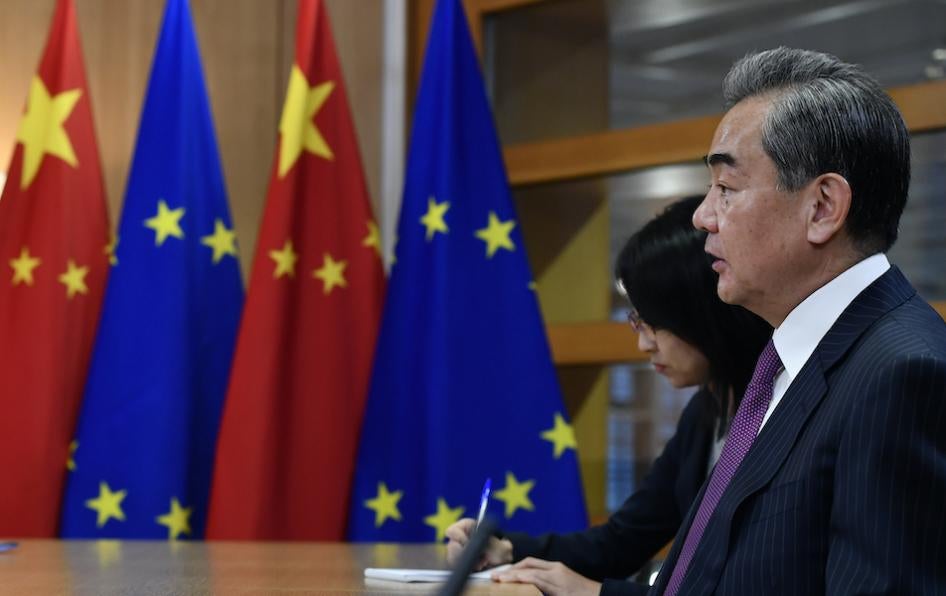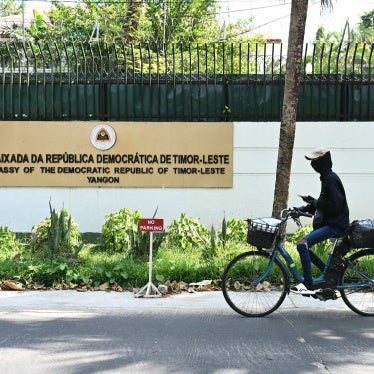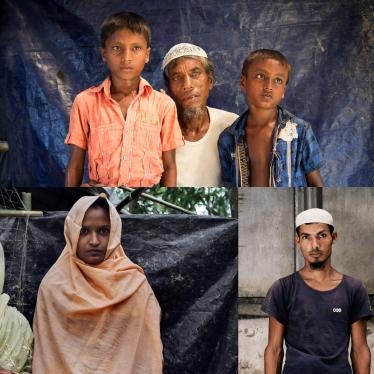(Brussels) – The European Union should suspend its upcoming human rights dialogue with the Chinese government, given the magnitude of China’s rights crisis, including its potential responsibility for crimes against humanity in the Xinjiang region, 10 human rights groups said today.
“The EU’s human rights dialogues with China have become increasingly meaningless because both sides know that Beijing can make no commitment and get away with it,” said Dolkun Isa, from the World Uyghur Congress. “The EU had gained momentum holding the Chinese government accountable for growing abuses in recent years; it should not dial back by returning to these tick-the-box exercises.”
In a February 15, 2023 letter, ten human rights groups urged the EU to continue to suspend the human rights dialogues with China until conditions are met for tangible outcomes and progress. Instead, any forthcoming bilateral meeting should be used by the EU to commit to follow up the United Nations Office of the High Commissioner for Human Rights report on Xinjiang and set up an independent, international investigative mechanism into crimes against humanity targeting Uyghurs and other predominantly Muslim communities and a wider, regular monitoring and reporting process at the UN Human Rights Council on Chinese government’s human rights violations.
The EU should also publicly call for an end to China’s brutal repression in Xinjiang, Tibet, and Hong Kong, and for the release of arbitrarily detained human rights defenders and activists. They include Ilham Tohti, the Sakharov Prize laureate; Gui Minhai, a Swedish publisher; Guo Feixiong and He Fangmei, human rights defenders; Dorjee Tashi, a Tibetan businessman; Chow Hang-tung, a Hong Kong lawyer and activist; Gao Zhisheng and Ding Jiaxi, human rights lawyers; Chang Weiping, a legal scholar; and others.
Human rights dialogues between the EU and the Chinese government have been suspended since 2019, following the EU’s imposition of human rights sanctions against officials involved in human rights abuses in Xinjiang and Beijing’s retaliatory sanctions against members of the European Parliament and other individuals and entities. During European Council President Charles Michel's visit to Beijing in December 2022, President Xi agreed to resume the human rights dialogue. Media reported that the EU and China would hold such a dialogue before the end of the week of February 12.
“Having a human rights dialogue with China cannot seriously be an end in itself,” said Vincent Metten, of the International Campaign for Tibet. “The EU would disregard its own principles if it doesn’t tie its future relations with China with real human rights progress including in Xinjiang and Tibet.”
Since the last round of the human rights dialogue in 2019, concerns over the human rights situation in China have continued to grow. In August 2022, a UN Human Rights Office report concluded that the treatment of Uyghurs and other predominantly Muslim groups by the Chinese authorities, “may constitute international crimes, in particular crimes against humanity.”
Earlier in February in Hong Kong, the authorities began the largest trial under the draconian National Security Law against 47 prominent pro-democracy politicians and advocates. In Tibet, the authorities’ assimilation policies threaten Tibetan culture and subject Tibetan writers, intellectuals, and activists to arbitrary detention and lengthy prison terms. Elsewhere, the authorities harass, detain, and prosecute human rights defenders and crush free speech on and offline.
“When the EU and its member states meet with China, it will be a litmus test for their human rights commitments in their foreign policy,” said Eve Geddie, EU director at Amnesty International. “Civil society in China and worldwide will be watching. The EU’s credibility as a global human rights actor is at stake, but also the stakes remain high for rights defenders, activists, lawyers, and civil society across China.”
The resumption of the EU-China human rights dialogue would come days after China’s new Ambassador to the EU called for lifting reciprocal sanctions and for the swift ratification of a bilateral trade deal.
“The eagerness to resume these dialogues despite their proven ineffectiveness risks signaling that the EU is ready to sweep aside human rights to secure closer trade ties and cooperation with Beijing,” said Philippe Dam, EU director at Human Rights Watch. “Lacking any prospect for concrete progress, the EU should suspend the dialogues and double down on its efforts to secure UN action on China’s abysmal record and pursue accountability for international crimes committed in Xinjiang.”









